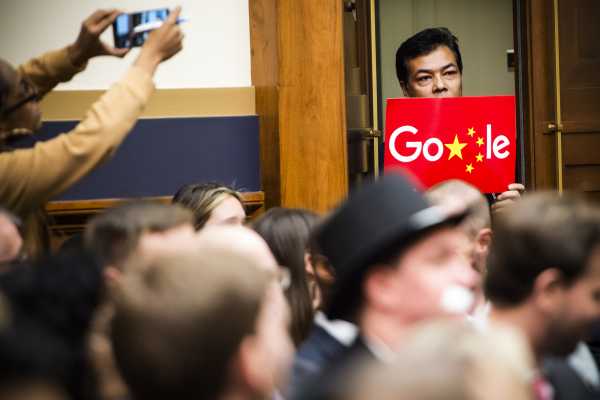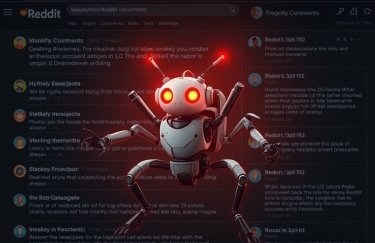
2020 Democrats weigh in on the biggest issue in tech
From checking big tech’s power to making sure the internet is equal for all, the 2020 candidates weigh in on the biggest tech issues.
By
Rani Molla and Emily Stewart
Dec 3, 2019, 7:10am EST
Share this story
-
Share this on Facebook
-
Share this on Twitter
-
Share
All sharing options
Share
All sharing options for:
2020 Democrats weigh in on the biggest issue in tech
-
Reddit
-
Pocket
-
Flipboard
-
Email
Part of
We asked 2020 Democratic candidates 7 key questions on technology
To find out how 2020 Democratic candidates would use their presidential powers to address different aspects of technology, we sent seven key questions to every campaign. This post includes five candidates’ answers to the seventh question. You can find answers to the other six questions on the landing page.
What’s the most important tech-related issue that Americans are facing in the next four years?

Bernie Sanders: [I believe] the most important tech-related issue of today is the enormous concentration of economic and political power in the hands of a few massive, unaccountable technology firms. Google, Facebook, Amazon, and others have amassed huge political power, influencing regulators, lobbying legislators, and even attempting to buy out entire city councils. They avoid taxes, stash profits overseas, and fight every attempt to share any of their profits with working people. They control what we see on the internet, what news we read, and what we buy.
[I believe] that these conglomerates have too much power and should be broken up. [I] also know that just breaking up these corporations won’t fix all the issues — we must regulate tech companies to serve the public interest, not just their bottom lines, and rid our democracy of corporate money once and for all. When [I am] president, we will restore net neutrality, guarantee strong data privacy protections, end the Orwellian mass surveillance of our people, guarantee affordable high-speed internet to all, and ensure technology benefits society, not just the 1 percent.

Elizabeth Warren: Giant companies like Facebook, Amazon, and Google have too much power over our government and our economy. They decide the rules — influencing our government to help tilt the playing field toward themselves — and away from working people. We need to pass my Anti-Corruption Plan to clean up Washington and we need to break up big tech — both of these plans will put power in the hands of the American people, where it belongs.

Pete Buttigieg: First, we need to recognize that technology is more than online platforms. Certainly we must hold our online platforms accountable, while making sure that technological innovation is an economic accelerator and opportunity equalizer for everyone. But over the past few years, we have seen how technological progress can be accompanied by and even create entirely new challenges, such as rampant privacy and security violations, and new forms of discrimination and misinformation that put our democracy at risk. Under my administration, I will proactively address today’s technology challenges in order to deliver on tomorrow’s technology promise.
- First, we need to hold our online platforms accountable, demand comprehensive privacy protections, set standards of accountability and transparency for online political ads, elevate ongoing antitrust enforcement reviews, and ensure we keep market power in check for the benefit of consumers. To do so, I will enact comprehensive privacy reforms, modernize our antitrust laws, double antitrust enforcement budgets, and support the SHIELD Act and Honest Ads Act to rectify our online ads problems. These steps matter for our security, our economy, our privacy, our ability to openly speak our minds, our faith in the nature of truth, and the future of our democracy.
- Second, we need to ensure that every American can participate in digital opportunities, regardless of where they live. This is why I’ve proposed a bold $80 billion Internet for All initiative to ensure that all Americans have access to high-speed broadband, because where you live should not cut you out of the 21st century economy. This is also why I believe that the internet must be fair, safe, and accessible, so we must combat new forms of digital discrimination like bias in algorithmic decision-making.
- Third, to make sure America is home to the new jobs and industries of tomorrow, I will help accelerate our innovation engine once again and ensure we do not cede leadership on new technologies to other nations like China. To do so, we need to start by improving trust in key technologies and addressing our most pressing challenges, such as privacy, cybersecurity, and misinformation.
- Fourth, I will help fuel the economy of the future by developing successful job training programs for all workers of all ages in every city and town in America through a $50 billion investment in workforce training and lifelong learning. I will also expand STEM education and technical training to women and minorities that have for too long been underrepresented in these fields.
- Lastly, with smart investments and rigorous safeguards, we also need to use the power of emerging technologies and data to help us expand our government’s ability to solve urgent policy problems, improve inclusiveness, and deliver better services. Technology can’t solve our biggest challenges, but neither can we solve some of our biggest challenges without trusted innovation. I will leverage new technologies to help us solve our most urgent challenges, such as improving energy efficiency, cutting greenhouse gas emissions, launching a new manufacturing renaissance, accelerating precision farming, helping Americans live longer and healthier lives, and enabling more resilient communities that better meet our needs. Data can also be a powerful tool for change, which is why I have committed to utilizing data to improve accountability in policing, such as by establishing a federal database documenting use of force and tracking officers who are fired for misconduct.

Tom Steyer: The next frontier of technology — and potential danger — lies in artificial intelligence and automation. We have to make sure that people write the rules, not tech companies, to protect jobs and our safety. Developing artificial intelligence doesn’t mean we have to compromise our values, and we have to remain steadfast in cyber defense when it comes to dealing with AI among our adversaries.

Michael Bennet: The greatest tech-related challenge in the short term is disinformation in the 2020 election. The integrity of our democracy hinges on the security of our elections. The 2016 elections demonstrated that hostile actors like Russia are perfectly willing and capable of breaking into our voting systems and exploiting social media to spread false and divisive content. As we approach the 2020 elections, tech companies need to do far more to proactively prevent and disrupt these operations, and US citizens need to remain vigilant against them.
The United States is also at risk of losing our longtime technological edge to China, which is making record investments in next-generation technologies like artificial intelligence, quantum computing, and nanotechnology. The loss of America’s technological edge would have far-reaching consequences not only for our economy, but also our national security. It is therefore imperative that the United States secures our advantage with a long-term strategy to increase federal investment, spur innovation, deepen partnerships between the public and private sectors, and broaden the talent pipeline.
Sourse: vox.com






